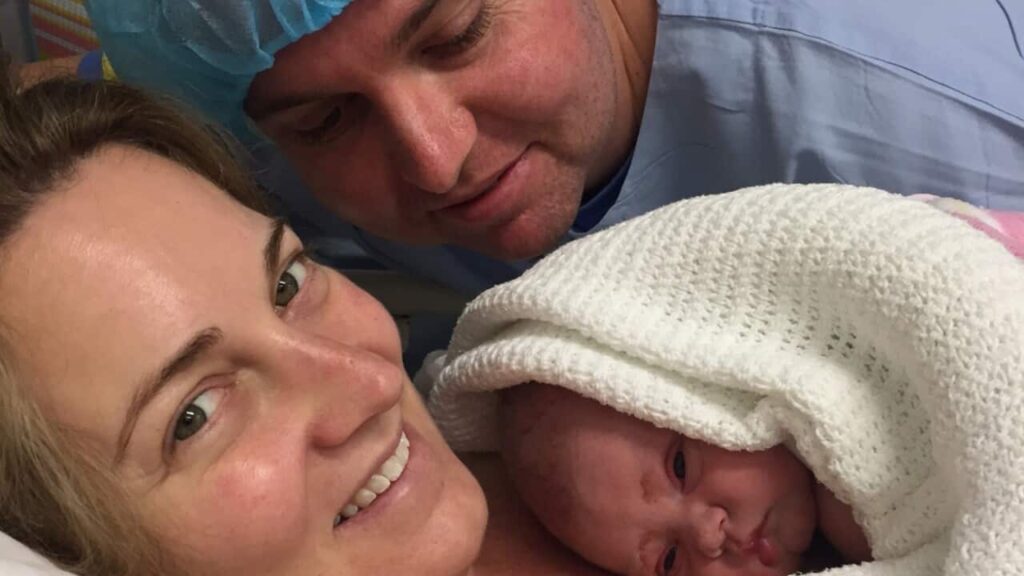
A recent study by the Gidget Foundation has revealed that approximately one in four Australians are not seeking support for perinatal mental health issues. Experts attribute this concerning trend to a lack of awareness and the persistent stigma surrounding mental health during the perinatal period.
The research surveyed over 1,600 Australians, uncovering that a third of respondents did not believe their symptoms were severe enough to warrant professional help. This highlights a critical gap in understanding the signs and symptoms of perinatal mental health issues.
Personal Stories Highlight Isolation and Shame
Lisa Fox, a 44-year-old mother from the Central Coast of New South Wales, shared her personal experience of feeling isolated and ashamed during her pregnancy a decade ago. Despite receiving care for a pre-existing mental health condition, she was not offered perinatal-specific support.
“Pregnancy was a very isolating experience. Because I was depressed and low throughout it, I felt a real sense of shame around not experiencing pregnancy like you think you should,” said Lisa.
Lisa’s story underscores the emotional turmoil many parents face, exacerbated by the absence of targeted mental health resources during the perinatal period.
The Role of Awareness and Early Intervention
Katie Peterson, a clinical psychologist with the Gidget Foundation, emphasizes the importance of early intervention. She notes that many new parents struggle to differentiate between typical parental challenges and mental health disorders.
“Early intervention is the best. Instead of waiting for someone to be at a serious or severe end, we really want people engaging with professional support early on,” Peterson explained.
Peterson identifies several risk factors for perinatal mental health issues, including hormonal changes, emotional stress, and social role adjustments. These factors can be compounded by birth trauma, perinatal loss, or health complications, increasing the risk of mental health disorders.
Overcoming Stigma and Financial Barriers
Shame and stigma remain significant barriers to seeking help, as Julie Borninkhof, CEO of PANDA, points out. Many parents fear judgment and the potential repercussions of admitting vulnerability.
“We know still that people, especially our mums, fear raising a conversation about vulnerability because they expect then that the system and community will say ‘you’re not fit to parent’,” Borninkhof stated.
Financial constraints further complicate access to mental health services. The Gidget Foundation’s data shows that 47% of respondents relied on bulk billing, while 27% could not afford help at all.
Cultural and Gender-Specific Challenges
Additional barriers exist for culturally and linguistically diverse communities and First Nations people, who may face cultural and language obstacles when accessing services. Peterson highlights the need for culturally appropriate support systems.
“There can be delays in accessing culturally appropriate services, accessing interpreters, and navigating culturally appropriate services,” Peterson noted.
Fathers are also underrepresented in perinatal mental health support, with only 5% of PANDA’s helpline callers being men. Borninkhof refers to this as the ‘Dad gap,’ emphasizing the need for more inclusive support systems.
“There’s still a significant stigma around the fact that men feel they have to be the rocks in the family. Even rocks crumble,” Borninkhof remarked.
Community Responsibility and Support Networks
Lisa Fox believes that broader community awareness and support are crucial for new parents. She advocates for a collective responsibility involving family, friends, and workplaces to understand and promote available mental health resources.
“I really do think that it’s a community responsibility. It shouldn’t just be the mum that’s struggling who then needs to work out they need help – that everyone’s aware of it,” Lisa asserted.
Connecting with other mothers was a turning point for Lisa, helping her realize she was not alone in her struggles. This sense of community can significantly reduce feelings of isolation and shame, encouraging more parents to seek the help they need.
As Australia continues to address these challenges, increasing awareness, reducing stigma, and ensuring access to culturally and gender-appropriate services will be vital steps in improving perinatal mental health outcomes.







